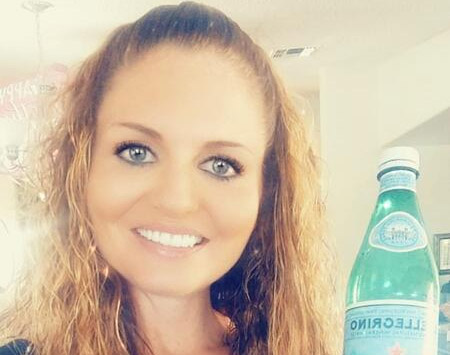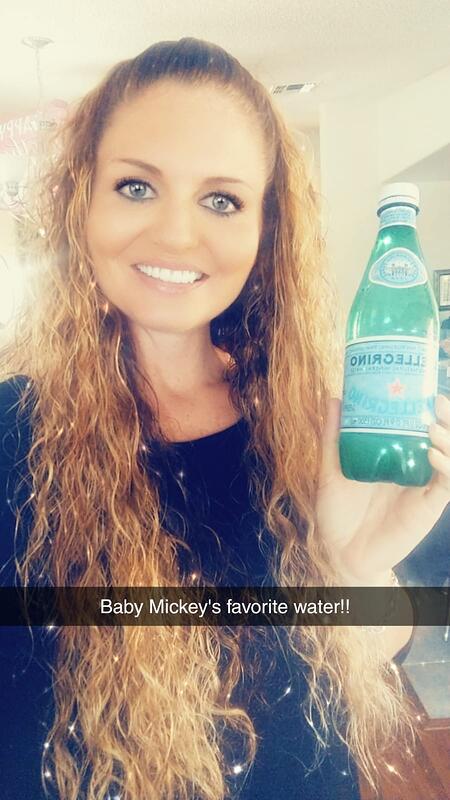Based on true events #omegastories
In Surrogacy, the baby always belongs to his or her parents.
The Sparkling Water Story
We are having a baby for someone who can’t
My wife and I are shopping at the mall. We are going to get some things our older daughter needs before being deployed again to Afghanistan. As we stand in line to pay for some shirts she got, she sees sparkling water and goes for it with excessive excitement. I thought this was SUPER odd, she does NOT like sparkling water.
Craving for something I know my wife does not like
Hun… what are you doing? I asked carefully (you never want to anger a pregnant woman). “I just really have a craving for sparkling water,” she says. My wife is pregnant with Intended Parents’ Shawn and May’s son. We are serving as Surrogates for them. They have had years facing infertility and nothing has worked until now. She decides to text Shawn and May and tell them about this sudden unexpected craving.
The undeniable genetic bond
As we finish paying for the shirts, a text comes in:
Thank you so much for this news, our son is just like us! My husband and I LOVE sparkling water and we have it all the time. It must run in the family.
My wife looks at me and says, “See… this is why we are on this journey. We have already begun to bring family moments to life.”
****************************************************************************************
The Surrogate Mindset
Surrogate Mindset: How can you give up the baby? The Surrogate’s Mindset is triggered each time she hears someone ask this question. Sometimes, no matter how many times a Surrogate explains these three basic components to her mindset, people always seem to ask the same question. To be able to answer this question, it’s important to understand that Surrogacy does not only involve the physical aspect of pregnancy, but the knowledge that having a child through Surrogacy becomes a couples last resort when wanting a child of their own.
1. A Surrogate and her family do not want to have more children of their own.
Within the Surrogates Mindset lies the knowledge that as a mother, you know that you and your partner do not want to have any more children. No matter how much you love being pregnant, or love having a baby or small child around the house, you know your family is complete. This is important because infertility is something that can occur even after a woman has already had children of her own; this condition is called secondary infertility.
One of the requirements to become an Omega Family Surrogate is to have your own children, and you must be between the ages of 21 and 36. If as a woman, you would like to go through pregnancy again but are done having children of your own, and you find yourself within the age range, you can help a couple facing infertility. You could help Intended Parents whose last chance of becoming a genetically related parent is through a Surrogate. On the other hand, you do receive an additional income to help your family.
2. The baby is not mine; it belongs to his/her parents
Just as illustrated with the sparkling water story, the baby belongs to his or her parents. The baby comes from both parents´ genetic material, bringing along with it family tradition, history, and preferences. The Surrogate serves as a gestational carrier, enabling the embryo to develop and become a baby. Before the baby is born, a legal document called a Pre-Birth Order, or PBO is made. The PBO is a document similar to a birth certificate that sates who the baby’s parents are. The Surrogate’s name is never mentioned in that document. She is there to protect the baby, but as she does not want any more children of her own, she is happy to return the baby to his/her parents.
The Surrogate does create a protective bond with the child because during the pregnancy and the birth process the baby is developing and born in the safest and healthiest environment possible. Once the baby is born, the Surrogate’s purpose is fulfilled and the baby goes home with his or her parents. Many Surrogates associate the feeling of protection with that of an aunt or uncle. They are overjoyed that the niece or nephew is going to spend time with them, but they are just as overjoyed when they are able to return the kids to their parents.
3. Giving Back through Surrogacy
There is no better way to learn than through example. Many times as mothers it is hard to be able to give back to the community; but through Surrogacy, not only are you able to help a family who needs your assistance, you also become part of a community that gives back the same way you do. Showing your children that you are able to affect a family in such a positive way can teach them about doing good to others. Everyone has their own way of giving back, and Surrogacy can be one of them.
Becoming a Surrogate is helping out in a very unique way, and not all women are able to meet all the requirements to become a Surrogate. Just because you are able to have children naturally does not automatically qualify you for Surrogacy. If you cannot become a Surrogate but know someone who could, recommending them for Surrogacy with their approval, could be a way that you could help a family that faces infertility.
A family gained
Having a child is a blessing that not everyone can have. Intended Parents will bond with their child; the sparkling water story is proof of this. Through Surrogacy a child may have gained a person who cares for him or her. If that connection remains throughout the child’s life, is up to the decision that both the baby’s parents and the Surrogate with their family make. Communication is key during Surrogacy, as well as the knowledge that the Surrogates Mindset is a fundamental part of undergoing the Surrogacy route




